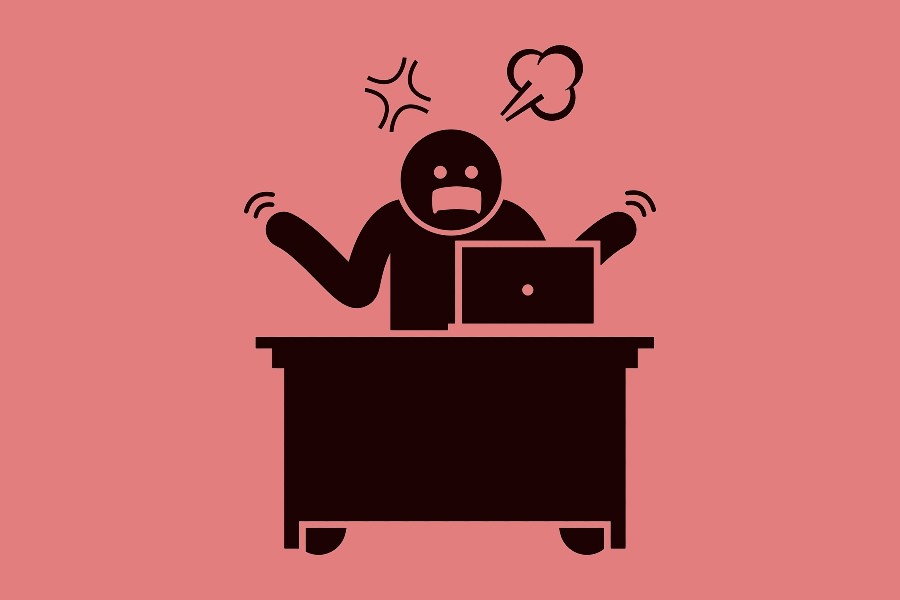Many people experience stress in life, either from one-off projects in the short-term or through long-term stress from a high-pressure career. Moreover, multiple daily challenges, such as sitting in traffic, meeting deadlines and paying bills, can push a person beyond their ability to cope.
Stress is defined as psychological, physical and behavioural reaction by a person when they perceive a lack of balance between the demands placed upon them and their ability to meet those demands, which, over a period of time, leads to ill-health. Simply put, one person's stress trigger may not register as stressful to someone else. Stress can come from many sources. The situations and pressures that cause stress are known as stressors. Anything that puts high demand on a person can be termed as his or her stressor.
A person may experience numerous emotional and physical disorders that healthcare experts have linked with stress. These include depression, anxiety, heart attacks, stroke, hypertension, a host of viral disorders ranging from the common cold and herpes to certain cancers, as well as autoimmune diseases like rheumatoid arthritis and multiple sclerosis. In addition, stress can have direct effects on the skin causing rashes, hives, atopic dermatitis, along with peptic ulcer, irritable bowel syndrome, ulcerative colitis etc. Stress can also cause insomnia and degenerative neurological disorders like Parkinson's disease. This list will undoubtedly grow in the years to come as the extensive ramifications of stress are increasingly being evaluated. If one finds him or herself to be experiencing physical symptoms that he or she suspects may be related to stress, the individual should immediately contact his or her physician.
Stress management consists of a set of techniques and programmes intended to help people deal more effectively with stress in their lives. This is done by identifying the specific stressors and taking positive actions to minimise their effects. Stress management includes practicing daily meditation, identifying relaxing activities (unique for every individual), or a combination of multiple techniques. Besides diseases, both acute and chronic stress impact memory and concentration, making effective stress management crucial for optimal day-to-day functioning. Stress can be effectively managed in many different ways.
Some stress relief techniques can work in just a few minutes to calm the body's stress response. These techniques offer a quick fix that helps one feel calmer at the moment, and this can help in several ways.
Rapid stress relievers like breathing exercises, for example, may not build the individual's resilience to future stress or minimise the stressors being faced, but they can help calm the body's physiology once the stress response is activated.
Continuing healthy habits, like regular exercise or meditation, can help to promote resilience against stressors. Communication skills and other lifestyle skills can be helpful at managing stressors and changing how one feels. They can go from feeling 'overwhelmed' to 'challenged' or even encouraged.
Stressors need to be eliminated as soon as they cause stress. Some stressors cannot be eliminated entirely. In such cases, the stressor can be managed by the individual in a way that the intensity of stress is minimised.
One should not wait until stress damages the health, relationships or quality of life. Stress management practices should be tried as soon as possible. As with all health conditions, each situation is unique and needs personal attention from a professional, if necessary.
Taslim Ahammad is an Assistant Professor at Bangabandhu Sheikh Mujibur Rahman Science and Technology University, Gopalganj, Bangladesh.


